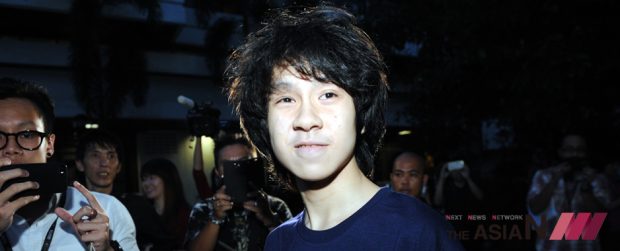Singapore COUNTRY REPORT: Professional Ethics Still a Media Imperative
In the internet age, some people brush aside the need for conventional full-time journalists or media organizations to give us our daily news. “That is already passe,” said a former reporter colleague of mine, surprised to hear that Asia Journalist Association (AJA) accept mainly working journalists. “Nowadays, a journalist is anyone who posts online—the bloggers and citizen commentators.” The former Straits Times employeeturned-entrepreneur concluded that the advent of social media made the professional journalist and traditional news institutions superfluous. He was giving me a global picture of the transformed media landscape shaped by Facebook, Twitter, Instagram, Linked-in, Tumblr, and Pinterest. And to be fair, my former colleague’s observations can be said to be correct— but only up to a certain point. Freewheeling citizen journalists and bloggers do not make professional journalists redundant as such reporters go about their business by giving prime importance to accuracy, fact-checking, and adhering to public sensibilities in coming out with what they write or publish. In other words, their age-old ethics remain as important as ever, making them play a lasting role in journalism. My old-time fellow worker also did not take into account the issue of media credibility—be it online or offline. In the case of Singapore, both forms of media suffer from a severe lack of credibility. Mainstream mass media suffers from a high credibility deficit because of its well-known pro-establishment stance that it has been adopting for years. And this, not for professional reasons, but from the control exercised by the government via a sophisticated system of management control of the Singapore Press Holdings (SPH) which publishes the mass circulation of English, Chinese, Malay, and Tamil newspapers. The newspapers have alienated a group of Singapore’s citizens for perceived bias and commentary on public issues—emphasizing the ruling People’s Action Party (PAP) government favorably in contrast to its often slanted and marginal coverage of the opposition parties. This one-sided posture has led political elites to turn to online news providers for more critical and unbiased reports and evaluation of government policies and actions. Following the 2011 General Election that saw the opposition winning more seats than previously seen, more than 200 political websites were started by bloggers and opposition parties to provide critical and alternative takes on government dealings. The list of such informal news outlets include the Online Citizen, TR Emeritus, All Singpore Stuff, Yawning Bread, Singapore Alternatives, MothershipSg, the Independent, and so on.
PAP leaders, at the same time, have faced social media challenges by making their own presence felt on Facebook both to help publicize themselves and their messages. The party is believed to have formed internet brigades to counteract adverse online comments made by opponents and critics. Noting the phenomenon, a critic of Singapore’s political scene, Professor Cherian George, said: “Increasingly, Singapore’s online space resembles the offline world.” PAP’s hitherto low profile supporters are becoming more vocal. “That is fine,” he added. But “more questionable is the undeclared sponsorship of online media content and infiltration of comment spaces with human mercenaries (the so-called internet brigade). Add to all these is the government’s deep online surveillance capabilities.”
Singapore’s authorities continue to closely monitor the political websites and have imposed mandatory licensing for websites that regularly feature localpolitical issues and that attract at least 50,000 visitors monthly. Such popular websites are also required to post a $50,000 performance bond and must remove objectionable material within 24 hours of receiving a government order. Under the Penal Code, the government has also punished bloggers who posted offensive views that are deemed to have scandalized court rulings or placed bias in their reviewing of public agenda. The government’s measures have a chilling effect on the blogging community that deem it as press censorship. But the authorities defended their actions, declaring they are holding bloggers to the same legal regulations of press ethics that staff of media organizations are expected to abide to. What sets citizen journalists apart from their professional counterparts in media companies is the multi-layered gate-keeping that filters copies for accuracy, sensitivity to race and religion, as well as for legal infringements. Bloggers, lacking such rigorous editing and screening, have often run afoul of the defamation laws or Penal Code.
Some individual bloggers failed the decorum test by using vulgar or offensive language and others engaged in personal vendettas through their postings. The lack of in-built fact-checking and copy vetting mechanisms has led citizen journalists to rely on unreliable sources for their stories. Such instances of misuse of blogging skills have led to a loss of confidence among the conservative members of the public. Simultaneously, mainstream media and their online sites are gaining more respect and credibility largely for stricter editing and more circumspect reporting.
A polling of 1000 Singaporeans in 2016 by a research firm found that 4 in 10 Singaporeans are skeptical about whether the news they read is true or false. When asked to make a comparison, they said alternative socio-political sites are more likely to provide fake or misleading news then mainstream media sites and government websites. Thus, the trust quotient among Singaporeans might well be shifting from online to traditional media as far as news reports are concerned. However, they will still turn to citizen bloggers for more critical and objective analysis of government policies and check them against the accounts of pro-government newspapers and their online sites. The proliferation of fake news has narrowed the credibility gap between the mainstream and online media, giving a fresh fillip to professional journalists’ standing with the public.
































































